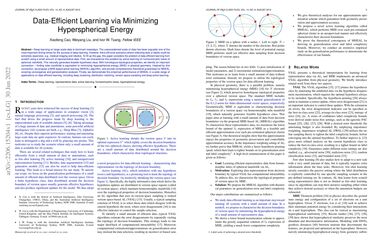Data-Efficient Learning via Minimizing Hyperspherical Energy
Deep learning on large-scale data is dominant nowadays. The unprecedented scale of data has been arguably one of the most important driving forces for the success of deep learning. However, there still exist scenarios where collecting data or labels could be extremely expensive, e.g., medical imaging and robotics. To fill up this gap, this paper considers the problem of data-efficient learning from scratch using a small amount of representative data. First, we characterize this problem by active learning on homeomorphic tubes of spherical manifolds. This naturally generates feasible hypothesis class. With homologous topological properties, we identify an important connection -- finding tube manifolds is equivalent to minimizing hyperspherical energy (MHE) in physical geometry. Inspired by this connection, we propose a MHE-based active learning (MHEAL) algorithm, and provide comprehensive theoretical guarantees for MHEAL, covering convergence and generalization analysis. Finally, we demonstrate the empirical performance of MHEAL in a wide range of applications on data-efficient learning, including deep clustering, distribution matching, version space sampling and deep active learning.
PDF Abstract
